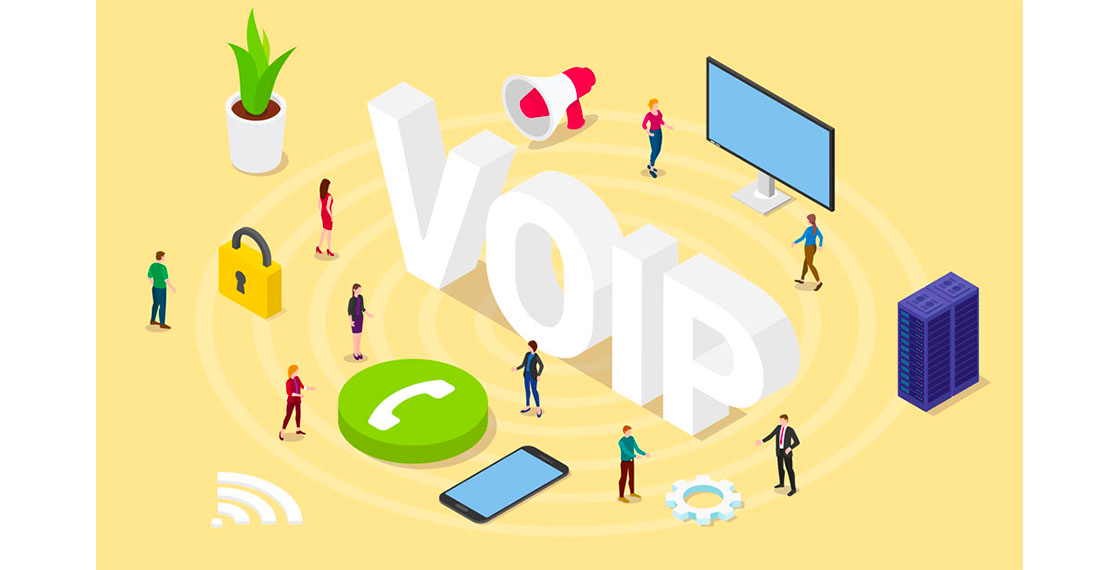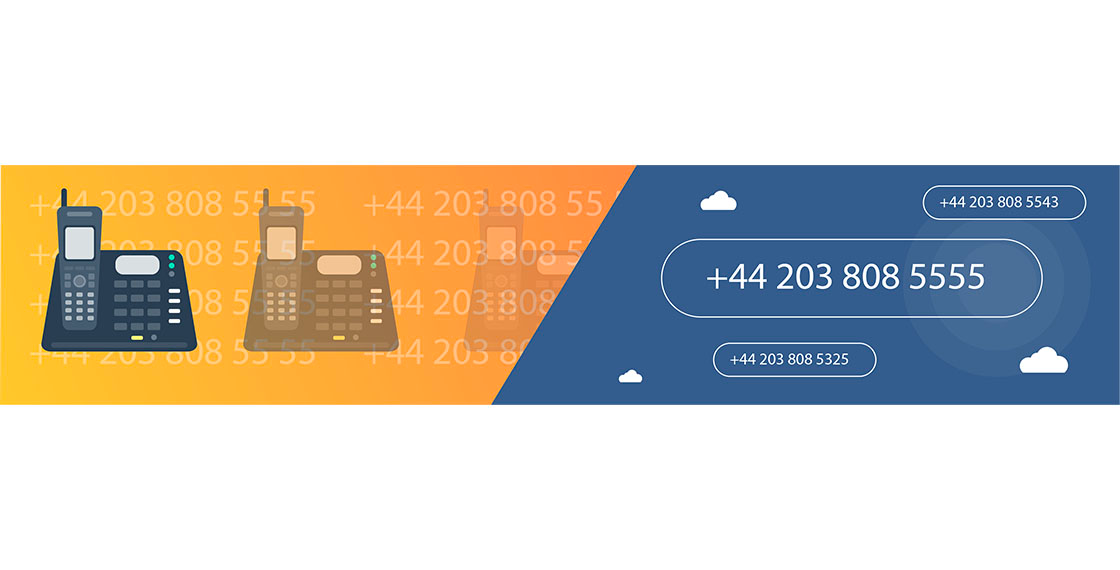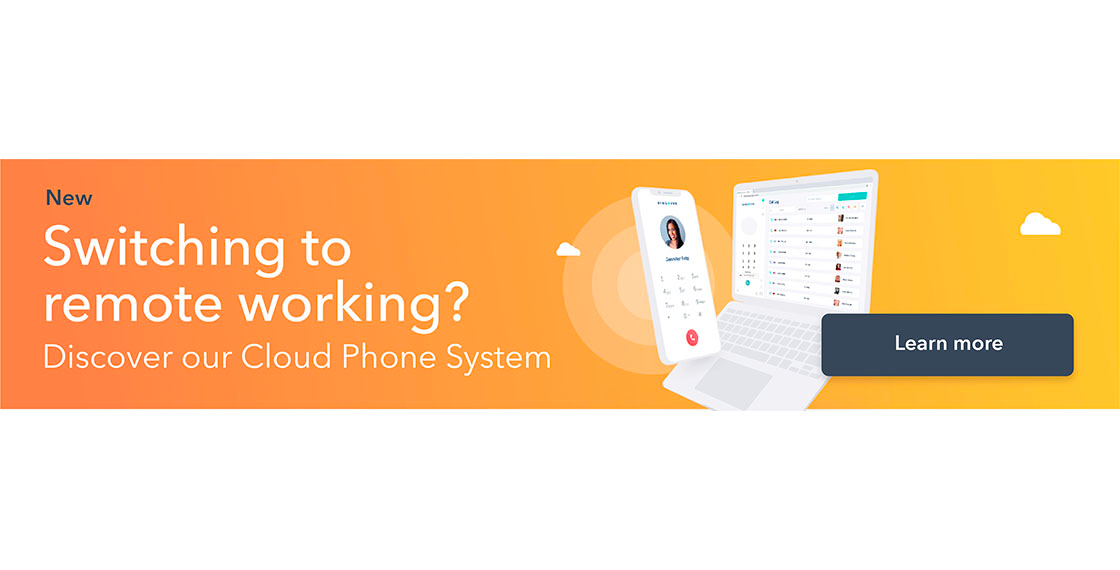Summary
- What is a VoIP Number?
- What Is VoIP?
- What Is the Difference Between VoIP and a Landline Number
- The Different Types of VoIP Numbers
- Why Businesses Should Use a VoIP Number
- How to Use VoIP Effectively
- What Are Some Problems/Downfalls With VoIP Numbers, and How to Avoid Them
- The Main Benefits and Disadvantages of VoIP Numbers
- Looking for a VoIP Number? Ringover Can Help
Have you ever encountered the following situation: You want to contact a client—but you’re on the road traveling. You want to contact this client from your business phone number, but it’s a landline and isn’t portable? Well, VoIP is the solution to that problem.You can call clients or have them call you from anywhere in the world as a local number. And if you need more, you can create a specialized business number too.If you are like many business owners, from the single entrepreneur in the coffee shop or garage to the CEO of a large corporation, you are either using a landline or smartphone to conduct business. That’s the new norm today.However, a solution exists, one that has been accessible for years, called VoIP. VoIP is a game-changer, and any business can benefit from its inclusion in the organization.
What is a VoIP Number?
VoIP numbers are phone numbers that use Voice over Internet Protocol (VoIP) telecommunications providers and the Internet to place calls, similar to how cell phone numbers use cellular networks and providers. Your VoIP number will perform exactly the same as any other number. Some differences, however, do exist in how you choose a VoIP number and how to place a call.VoIP numbers are not restricted to single devices or single geographic locations. You can use your VoIP number on many different devices, like laptops, tablets, and smartphones. Not only can you use a VoIP number with multiple devices, but you can use these devices simultaneously. While you can port a number from cell phone to cell phone, you cannot use a cellular number on two different devices at the same time. Unlike landlines, which allow you to use the same phone number on a number of devices simultaneously, you are not restricted to a single location.With a VoIP number, you can choose your own area code. If you are a New York-based business, and you want to increase your customer base in Florida, you can create a VoIP number with a Miami area code to appear as a local business to prospective clients. To do this with a cell phone or landline, you would have to be physically present in Florida when setting up your number, which is much more expensive and time-intensive.
What Is VoIP?
VoIP is a call service you can use to replace your landline number and even cell phone. Gone are the days where you have one phone number for one device. VoIP is a top-rated service among small and medium business owners due to its versatility, capability, and business sense. In this article, we will break down why, and how it can benefit your business, whether you are an entrepreneur with a single office or run a large company.

What Is the Difference Between VoIP and a Landline Number
You’re probably wondering what the major differences are when it comes to VoIP and landlines. Here’s what you should know:

Landlines are fixed phone services located at specific addresses, while VoIP is cloud-based with no specific address. Landlines use a number that connects to a physical phone in a physical location. If your landline is located in New York City, then your phone number will always be associated with New York. If you have a VoIP number in New York, you can move that number around. You can make it seem like you are in New York, even if you’re working from California. You can also change the phone number from one state to another. You can create a Florida number too (with VoIP, you can create many, many phone numbers). VoIP even lets you move the number between devices operating worldwide. Other differences exist between landlines and VoIP in terms of service areas, call quality, and pricing. But the main difference is the phone number's mobility, which is often the reason businesses and individuals choose one option over the other.Another difference between landline and VoIP numbers is cost. Landlines cost more. With VoIP services, you can create local numbers for all your office branches or remote workers. This setup allows you to avoid long-distance charges and save money for your business. With landlines, you will need to register a new line, wait for a service technician to make the physical connections required for a landline in your office or home, and then set up the landline with the local phone company. VoIP doesn’t have these issues. You can do the same with the click of a button—and continue to scale up users as needed—with minimal disruption.
The Different Types of VoIP Numbers
Several types of VoIP numbers exist that you can use for various purposes. The most popular types of VoIP services include:
- Residential Service. Residential VoIP is most comfortable to install if you already have a landline. You will need to purchase an adapter, which you will use to connect your landline to the Internet. Residential service is the old-school way of doing things, but it’s very reliable.
- Business Service. VoIP for businesses is either cloud-based or onsite. You can add features that scale with use so that you never have bottlenecks or service issues. Addable business-focused features include: conferencing, call reports, automated services, and more.
- Device-based Service. Service providers do sell VoIP devices, which you can plug into your existing phones to active VoIP services. Device-based service is a simple way to start using VoIP, but you will need to buy devices for all the phones you want to connect.
- Mobile-based Service. VoIP is available as a mobile application. All you need to do is download it from your mobile application store. Keep in mind that this option is only as good as your cellular network or Internet connection. If the link is secure and robust, the call quality will be too.
- Software-based Service. Software-based solutions are similar to mobile-based solutions. Many solution providers offer both services. The benefit of software-based service is that you can also access it and use it on your desktops, laptops, and tablets.
- Cloud-based Service. Cloud-based service can include both mobile-based service and software-based service, depending on the cloud provider you use. The "cloud" refers to where your services reside, and where you keep your call data. Whether portable or not, any device with access to the cloud can run cloud-based services, even the Internet of Things (IoT) devices like wearables.
There are also different types of VoIP phones that you can buy as well.The most common type of VoIP phone is the desktop phone. You see this type of phone in sitcoms and movies. There is an Ethernet port, which connects the phone to the local office internet network. You can use the phones to make calls, automate business features, and more.Wireless phones are similar to desktop phones, but there is no need for a physical cabled connection between the phone and the Internet. This option is great for office workers who want to remain connected while onsite and want the freedom to move around the office. Another type of VoIP phone that is common to see in offices is a conference phone. The main advantage of a conference phone is the ability to make conference calls with it. This option is excellent if you have a large company and need to run remote meetings with many people at the same time.There are also several different types of VoIP phone numbers. The most commonly known, although not used much anymore, is the toll number. Toll numbers allow businesses to charge the customer anywhere from a few cents to a few dollars per minute to talk. Toll-free numbers are more common. Businesses are not looking to fleece customers, and customers are not interested in extra charges beyond the goods and services they are interested in.You should also consider if you want a local, national, or international number. Many businesses operate local VoIP numbers to connect better with local customers. However, you can also register a VoIP number for a national office, or even an international phone number for worldwide distribution, customers, or suppliers.
Why Businesses Should Use a VoIP Number
Business is not monolithic—it changes with the times, it changes based on new management, and it changes based on project management. Even a seemingly small project, like transitioning from in-office work to work-from-home positions for employees, can dramatically change how a business operates.The same is true when adopting VoIP or staying with a landline. Think about it like this. When you first open a business, assuming you rent a physical office location, you will likely route all business calls through a landline that’s based in the building. Employees in different offices may have extension numbers so that suppliers and customers can call them instead of talking to reception every time they call.In this scenario, you could use either a landline, or switch to VoIP, and your business's daily operations would not change much beyond either being able to take advantage of the extra services VoIP offers, or not.However, there are times when it makes sense to switch to VoIP. Here are a few:
- By switching to VoIP, you can bundle your phone and Internet bills.
- If your employees travel for work, you can provide them with corporate phone numbers instead of requiring them to use their phones or providing them work phones in real-time.
- You may want the advanced features VoIP offers, like geographic flexibility.
This last point is one of the most important, and why many businesses switch to VoIP service.
How to Use VoIP Effectively

The first thing you should do is analyze your business needs. Any business can add VoIP to their list of resources. However, if you want to use VoIP effectively, you should optimize and automate VoIP services tailored to your needs.If you want to create a network of traveling salespeople who are reachable at an extension, VoIP can do that rather than requiring you to create a new phone number for each salesperson. If you want to simplify conference calls, VoIP can do that.You can also use VoIP to create the appearance of having multiple office locations near geographic markets. Forwarding the calls to a single device for ease of convenience is a simple task that any business VoIP service can provide.
What Are Some Problems/Downfalls With VoIP Numbers, and How to Avoid Them
Using a VoIP number provides both advantages and disadvantages to businesses. While we cover most "problems" regarding the use of VoIP phone numbers in the next section on the benefits and disadvantages of VoIP and VoIP numbers, some issues you should know about using such a number are increasing service costs and reliance on a reliable Internet connection and the disadvantages of increasingly automating your business.
- VoIP costs can quickly increase if you need to utilize them more. The more phone calls you place, the higher your monthly bill will be. While many VoIP providers offer elastic service, where your costs only grow with your usage, you should shop around for the best packages based on your VoIP calling needs. Having a VoIP number on multiple devices for multiple workers, for example, will increase your data bills greatly.
- Using a VoIP phone number requires a reliable Internet connection. Internet connectivity is a non-issue when you are at your central office. However, for employees who travel for work, this can become an issue. Weak Internet or data connections can create issues for phone call quality, from additional static to weak reception for both the sender and receiver. You may not be able to contact your employees, or your employees may not reach prospective clients if they are not in a service area with a strong Internet connection. You may need to pay more for better Internet coverage, especially when mobile. Mobile hotspots are not cheap, but worth every penny for sales calls!
- Automating a business is a big decision. Some companies may not be comfortable placing all their data in the cloud or automating away in-person functions. Some business owners like physical spaces, in-person customer interaction, and the consumer experience that follows. When your sales staff is travelling and placing phone calls abroad, this in-office cohesion can be lacking.
It’s merely a different consumer experience. Using a VoIP phone number provides too many advantages to ignore the value it offers your business.
The Main Benefits and Disadvantages of VoIP Numbers
The Benefits of VoIP Numbers

- Ease of use. With a VoIP number, you can send and receive calls anywhere in the world. You are no longer limited to your geographic location, and roaming charges are not applicable to VoIP numbers since calls are sent and received over data connections.
- Affordability. VoIP numbers are affordable. Solutions can range from just a few dollars per month to more integrated but pricier solutions for companies that need those advanced, extra services. Being able to place and receive a phone call long-distance at affordable rates makes VoIP affordability one of its greatest benefits.
- Portability. You can take your VoIP phone number everywhere, primarily if you use a cloud-based service. As long as you have a reliable Internet or data connection, you are good to go.
- Scalability. VoIP service providers can scale up or down the services you need depending on your business goals. The main benefit of scalability is cost. While using your VoIP number will only increase your Internet data charges, you can also place VoIP calls on public networks (use a VPN!) for free to reduce costs.
- Advanced features not found in landlines. Landlines generally have a one-to-one connection between phone numbers and lines. With a VoIP number, you can use the same phone number on many devices.
- Call quality. With a reliable Internet connection, call quality is crisp and clear. Your VoIP calling experience will depend on the connection strength and speed. With satellite internet or a data phone plan, you can even place VoIP calls in non-service areas where there are no landlines or cell networks!
- Flexibility. VoIP phone numbers provide more flexibility than cell phones or landlines. You are location-independent and device-independent with a VoIP phone number, which is great for business professionals who travel for work. You can make or take a call while commuting, call from one country while in another, and more.
The Disadvantages of VoIP Numbers

- You need a reliable Internet connection. Your VoIP phone connections are only as good as your Internet connection. If you do not have a good internet connection, your call quality will suffer.
- Call quality can suffer. Landline call quality is better, although VoIP quality is improving every year. When calling with a VoIP number, your voice is being digitized and sent over digital networks. Cabled networks may or may not be used, resulting in varying call quality, especially if your connection is not reliable. Your best option is to use a strong Internet connection, like 5G, when placing a VoIP phone call.
- Increasing Internet/data bill. Your bill will increase because you will be bundling your VoIP phone charges with regular Internet service. You may even need to upgrade your Internet package to improve VoIP phone call quality, resulting in higher costs. Consider purchasing improved upload and download speeds, as well as greater data allotments from your service provider for better call quality.
- Geography. Landlines provide geographic stability. You register landline numbers at specific addresses. VoIP phone numbers travel with the device, so certain landline features, like geolocation, are unavailable. If you need to clock in to work with a VoIP phone, you may need to turn on location services, which will drain the battery.
- Work phones and BYOD issues. If your employees require VoIP phone numbers, you may need to purchase work devices or allow your employees to "bring your own device" (BYOD) policies. Buying devices is a better security strategy because you can choose the devices employees use, but it’s more expensive. BYOD is less secure, but startup costs are minimal as you will only need to provide employees with VoIP phone numbers and WiFi access. Another issue with BYOD policies is that, if a worker loses their phone, it may need to be remotely wiped based on your company’s data security policies, regardless of what personal information the worker has on the phone.
- VoIP is hackable. As a data service, VoIP can be hacked like any other data service. Your phone call data can be stolen or leaked. Make sure you use a VoIP provider that protects their networks and your data, and use a VPN when using public or third-party data connections/networks. Using a VoIP number has its benefits, but no telecommunications solution is 100% secure.
These are some of the more well-known benefits and disadvantages of using a VoIP phone number, and some of the common ones you will face.
Looking for a VoIP Number? Ringover Can Help
Two popular ways to find a VoIP number quickly are traditional network-based solutions, and cloud-based solutions. Network-based solutions are generally offered by top-rated cell phone and landline providers nationwide.But if you want a cloud-based VoIP solution that’s completely scalable—Ringover can help. Our VoIP solutions provide a lot of benefits to your business by making your communications more flexible.Are you looking for a dedicated business number that comes with all the premium business features you need? Get in contact with a Ringover VoIP specialist today to start your free trial.

Published on September 7, 2020.

